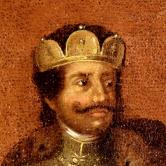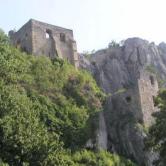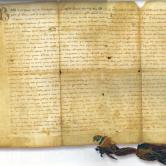History > Golden Bull
After the death of King Zvonimir, the last descendant of the Trpimirpvich dynasty, the throne was inherited by Coloman of the Hungarian Arpad dynasty, in accordance with the agreement made between Coloman and Croatian nobility (Pacta Conventa) in 1102. King Bela IV, who built fortified cities for defense against the Tatars in the mid 13 th century, belonged to the same dynasty. Bela IV conferred Royal Borough Status to these fortified cities.The legend has it that king Bela IV granted special privileges to the nobility of the region around the Kalnik Mountain because they defended him against the Tatars and fed him plums. A poem Šljivari (šljiva=plum) by famous Croatian writer August Šenoa is also based on this story, although there are no historic evidence to show this had really happened, or that these noblemen had been called šljivari. These "peasant noblemen" of the Prigorje region were called plemenitaši (nobility), while the word "šljivar" is derived from the word silvar (lat. silva - woods, hill), and has an ironic overtone, since it was probably used by the higher nobility and peasants whitout a noble descent to refer to the "peasant noblemen".
The document by which King Bela IV proclaimed a Free Royal Borough was the Golden Bull. It was granted to Gradec and Samobor in 1242, and to Jastrebarsko in 1257. The Golden Bull was granted to Križevci in 1253. It stated that the towns were subject directly to the King, not to the nobles whose estate they were situated on. The town was granted self-government, and the liberty of electing the town judge and leaders.
Near Križevci, on the Kalnik Mountain, there are the remains of a medieval fortress, first mentioned in 1243 in connection with king Bela IV. He had the fortress built in order to strengthen the defense against the Tatars. King Bela IV himself refers to the fortress as Castrum nostrum Kemluk mentioning its important role in the defense against the Tatars.




